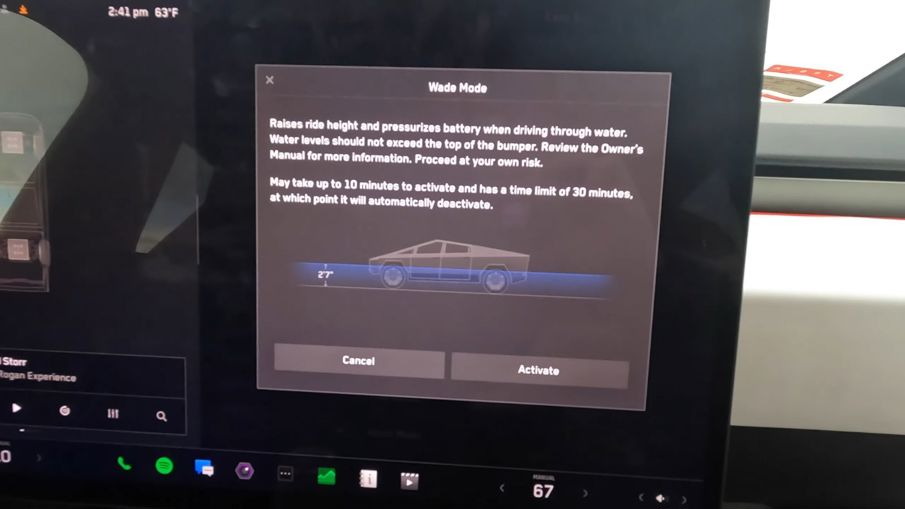Electric vehicles (EVs) have become more and more popular in recent years because of their advantages for the environment, reduced operating costs, and technological advancements. But as urban flooding becomes more frequent and severe due to climate change, a new query emerges: how do electric vehicles fare in floods in comparison to conventional gasoline-powered vehicles? In order to ascertain which type performs better in flood conditions, let us examine the various features of gasoline and electric vehicles.
Understanding the Basics: EVs vs. Petrol Cars
Before delving into flood performance, it’s essential to understand the fundamental differences between EVs and petrol cars. EVs are powered by electric motors and batteries, while petrol cars rely on internal combustion engines (ICE) fueled by gasoline. This distinction plays a significant role in how each type of vehicle behaves in flood conditions.
Waterproofing and Electrical Safety
One might assume that because EVs are packed with electronics and batteries, they would be more vulnerable to water damage. However, manufacturers of EVs have gone to great lengths to ensure the electrical components are well-sealed and protected. For instance, EV batteries are typically housed in waterproof casings and are subject to rigorous testing to withstand various environmental conditions, including water exposure.
Petrol cars, on the other hand, have their own vulnerabilities. Water can infiltrate the engine, exhaust system, and fuel lines, causing significant damage. While some petrol cars are designed to handle shallow water, prolonged exposure or deep water can lead to engine hydro-lock, where water enters the combustion chamber, causing the engine to seize.

Buoyancy and Weight Distribution
The weight distribution and buoyancy of a vehicle also impact its performance in floods. EVs often have a lower center of gravity due to the heavy battery pack located at the bottom of the vehicle. This design can provide better stability in shallow water. Additionally, the sealed nature of the battery pack can sometimes offer a degree of buoyancy, although this is not a substitute for a boat’s buoyancy.
Petrol cars, with their lighter weight and less evenly distributed mass, might be more prone to floating or being swept away in strong currents. The air intake and exhaust systems of petrol cars are also potential points of water entry, which can disable the vehicle quickly in flooding conditions.
Immediate Performance
In terms of immediate performance during a flood, EVs might have an edge. Since electric motors are not dependent on air intake for combustion, EVs can continue to operate in conditions where a petrol car might stall. Furthermore, the instant torque provided by electric motors can be advantageous when navigating through water-logged streets, offering better control and acceleration compared to petrol engines.
Long-Term Durability and Maintenance
After exposure to floodwaters, the long-term durability and maintenance requirements of both types of vehicles come into play. For EVs, water exposure primarily poses a risk to the electrical systems and battery. While these components are well-protected, significant water damage can

still lead to costly repairs. However, many modern EVs come equipped with systems designed to shut down electrical components in the event of water ingress, potentially minimizing damage.

Petrol cars, post-flood, often face extensive maintenance issues. Water can cause lasting damage to the engine, transmission, and fuel system. Contaminated fuel, rust, and electrical shorts are common issues that require immediate and sometimes costly repairs.
Safety Concerns
Safety is a critical concern in flood scenarios. Both EVs and gasoline cars have their own safety protocols. In EVs, the high-voltage battery systems are designed to shut down to prevent electrical shock. Petrol cars, while less prone to electric shock, can pose fire hazards if water causes fuel leaks.
Conclusion
When considering urban floods, EVs generally have several advantages over gasoline cars. Their design offers better waterproofing, stability, and immediate performance in shallow water conditions. However, it’s crucial to remember that no vehicle is entirely immune to the dangers posed by severe flooding. Both EVs and gasoline cars have their respective risks and benefits in such scenarios.
Ultimately, the best approach is to avoid driving through floodwaters whenever possible. If caught in a flood, understanding the specific characteristics of your vehicle can help you make more informed decisions. As technology continues to evolve, we can expect both EVs and gasoline cars to improve in their ability to handle extreme weather conditions, including floods.

Good blogs thanks
thank u